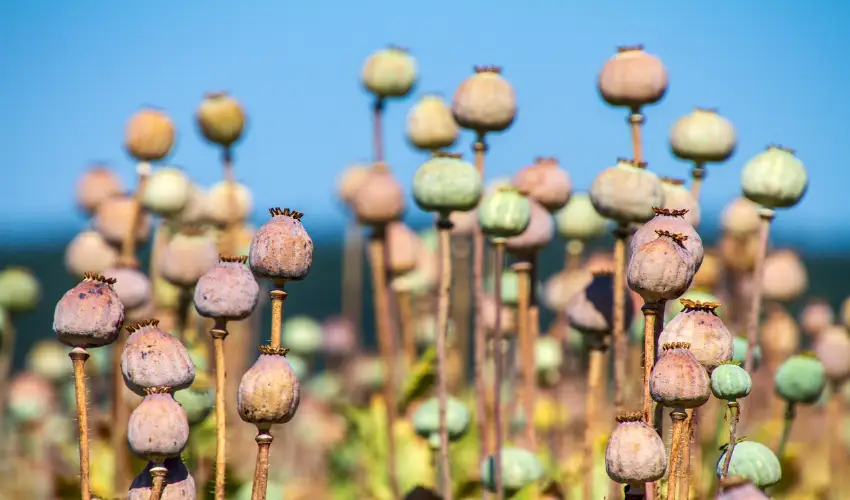Poppy pods, derived from the poppy plant (Papaver somniferum), have been widely used throughout history for various purposes, from medicinal to culinary applications. However, their role in cooking is often a topic of confusion. While poppy seeds are a common ingredient in many cuisines, the pods themselves are less frequently used. This article delves into whether poppy pods can be used in cooking and explores the potential benefits and risks involved.
The Structure of Poppy Pods
Poppy pods are the seed heads of the poppy plant. These pods contain a milky latex when fresh, which is the source of the substance known as opium. When dried, poppy pods become hollow, and the seeds can be harvested and used for culinary purposes. However, the pods themselves are not typically consumed directly. The seeds from the papaver somniferum pods are the main edible component, prized for their nutty flavor and crunchy texture.
Are Poppy Pods Edible?
While the seeds of poppy pods are commonly used in cooking, the pods themselves are not typically consumed directly. The pods contain alkaloids, such as morphine and codeine, which can be dangerous if ingested in large quantities. These compounds are the same substances used in the production of opiates, making poppy pods a potential health risk if improperly prepared or consumed.
However, dried poppy pods can be used in cooking in limited ways. They are often used as a decorative item in wreaths, centerpieces, and craft projects rather than for their culinary value. In some cultures, poppy pods may be used to flavor broths or teas, but these uses are relatively uncommon.
The Culinary Use of Poppy Seeds
The real culinary value of poppy plants lies in their seeds. Poppy seeds are a popular ingredient in various cuisines worldwide, particularly in baking. These small, dark seeds have a nutty flavor and a crunchy texture, making them an ideal addition to breads, muffins, and cakes. In Indian cuisine, poppy seeds are ground into a paste and used to thicken sauces and soups. They are also used in salad dressings, smoothies, and sprinkled over dishes like bagels and pastries.
Poppy seeds are rich in nutrients, including calcium, iron, and magnesium, which makes them a beneficial addition to any diet. Additionally, they contain healthy fats, including omega-3 fatty acids, which contribute to heart health.
Health Benefits of Poppy Seeds
Poppy seeds offer numerous health benefits, making them a valuable component in cooking. These seeds are an excellent source of antioxidants, which help reduce inflammation and prevent oxidative stress. They also contain alkaloids like morphine and codeine, but the concentrations in the seeds are minimal, making them safe for culinary use in moderation.
Additionally, poppy seeds are known to promote digestive health due to their high fiber content. They aid in digestion and may help relieve constipation. Their rich nutrient profile, combined with their versatility in cooking, makes them a popular choice for health-conscious individuals.
The Risks of Using Poppy Pods
While poppy seeds are safe to consume in moderation, poppy pods pose a more significant risk. The latex inside the pods contains high concentrations of opiates, which can have serious health consequences if consumed. Ingesting large quantities of poppy pods can lead to opiate poisoning, resulting in symptoms such as nausea, dizziness, respiratory depression, and even death.
In some countries, the cultivation and sale of poppy pods are highly regulated due to the potential for misuse and abuse of their opiate content. For this reason, it is important to exercise caution when handling poppy pods. Even if the pods are dried, they should not be consumed directly without careful preparation, as the opiate content can still pose a danger.
How to Safely Use Poppy Pods
While poppy pods themselves are not generally used in cooking, some people may use them to infuse flavors into liquids, such as broths or teas. However, it is crucial to use poppy pods responsibly and to be aware of the risks involved. If you choose to use dried poppy pods for flavoring purposes, make sure to do so in moderation and avoid any excessive consumption.
To safely incorporate poppy pods into your culinary endeavors, it is essential to properly dry and prepare them to reduce their opiate content. This process involves removing the latex and carefully drying the pods, though this does not eliminate all risks. For safety reasons, it is advised to avoid consuming large quantities of poppy pods or using them as a regular ingredient in cooking.
Conclusion
In conclusion, while poppy seeds are widely used in cooking and offer numerous health benefits, poppy pods are not commonly used in culinary practices. The pods contain alkaloids such as morphine and codeine, making them potentially dangerous if consumed in large quantities. While some cultures may use dried poppy pods to infuse flavors into liquids, caution should always be exercised when handling these pods. If you’re interested in using poppy seeds in your cooking, they are a safe and nutritious addition to a variety of dishes, providing both flavor and health benefits.
